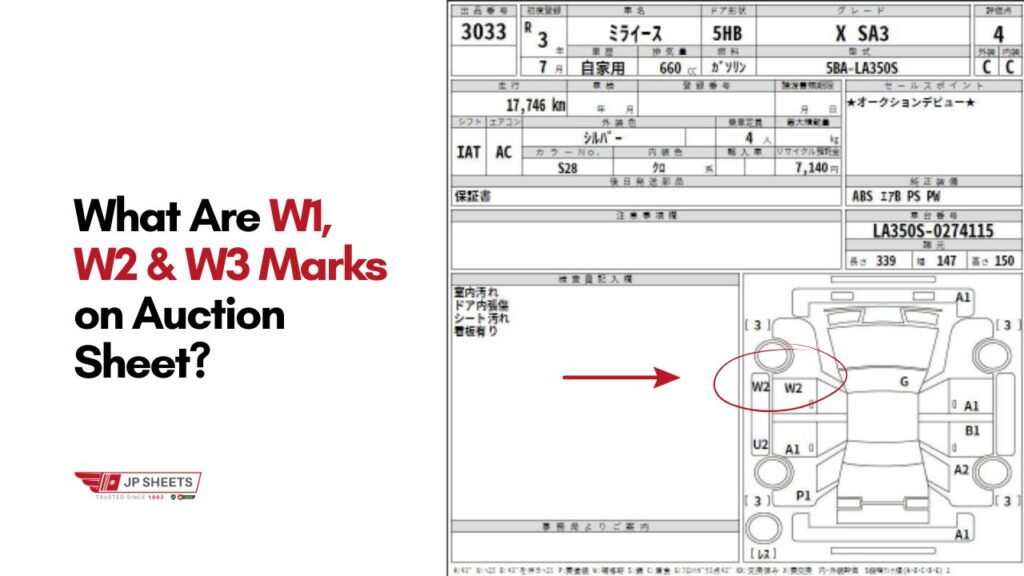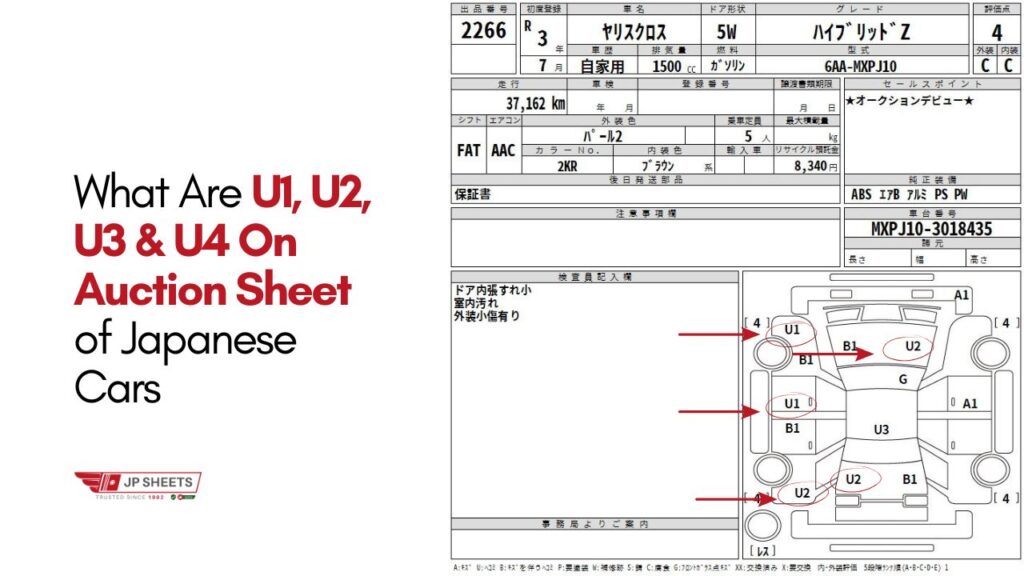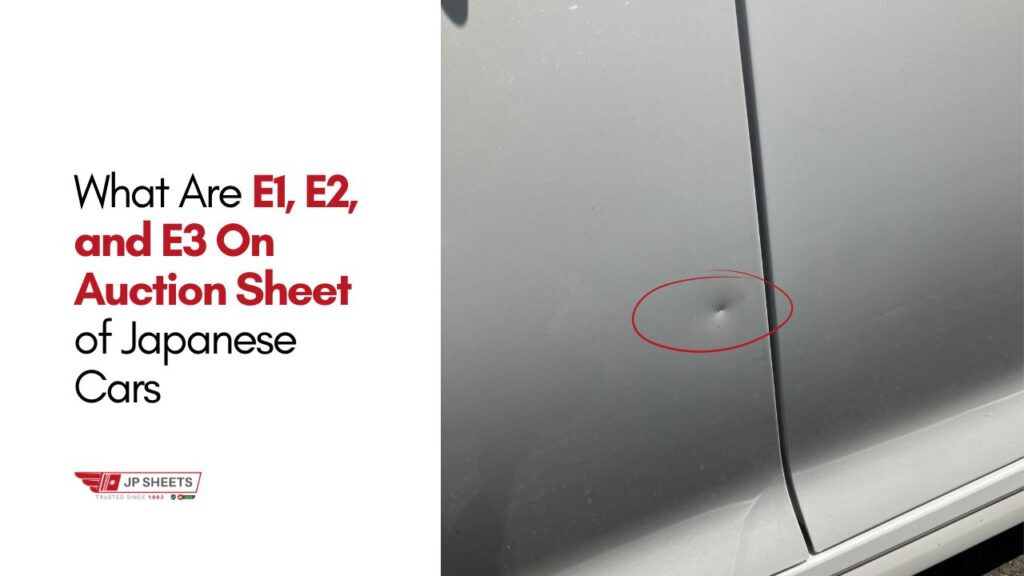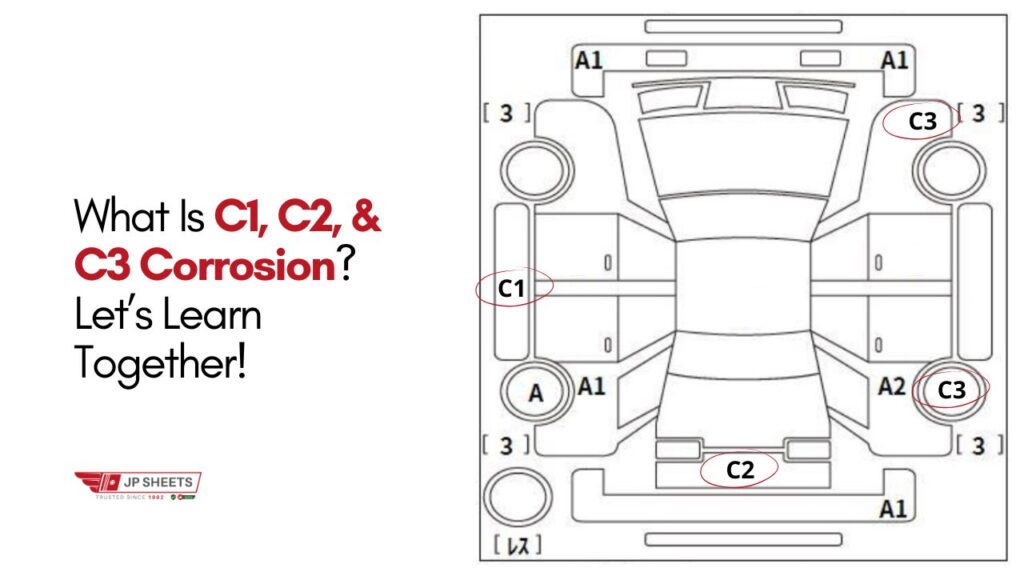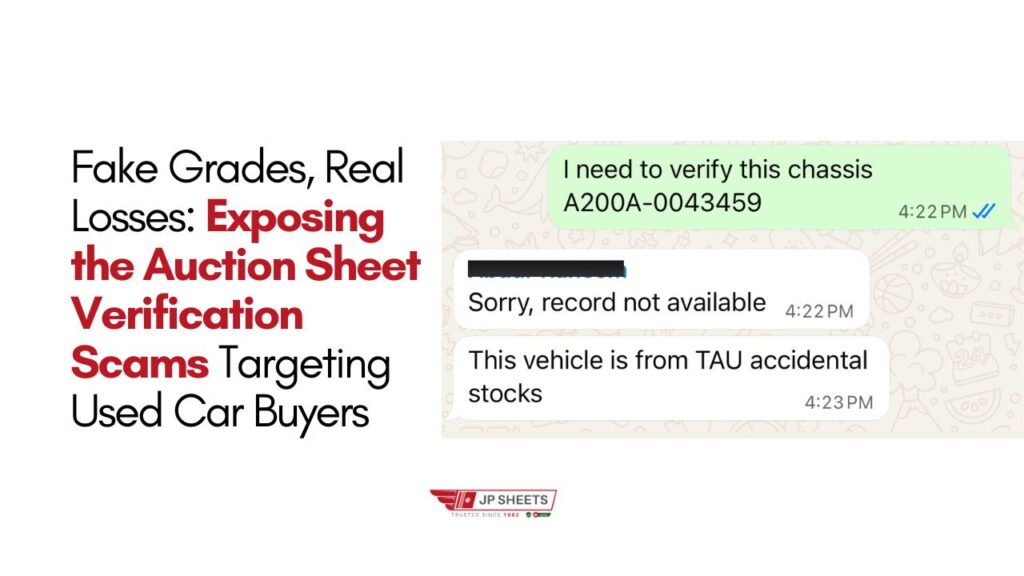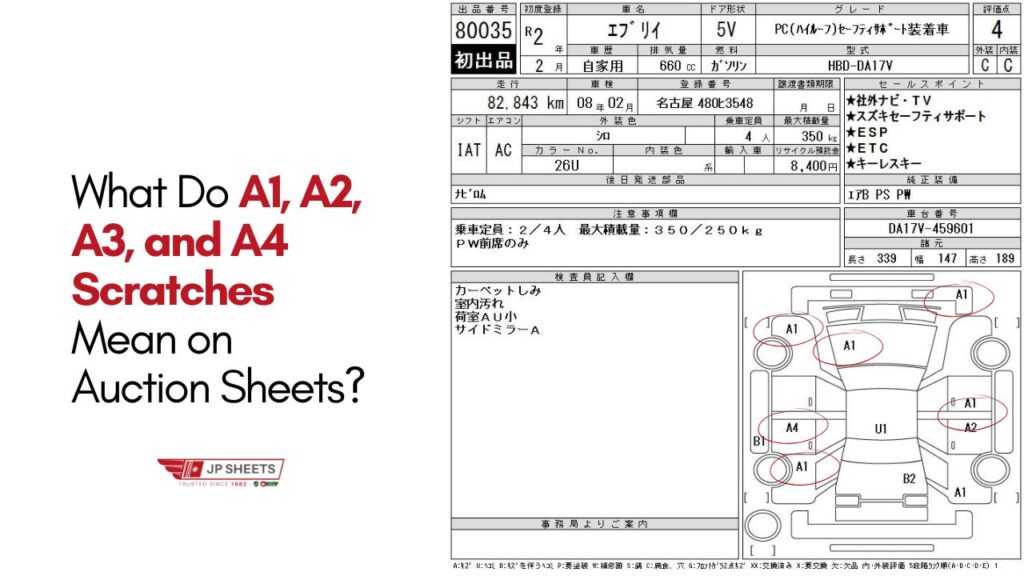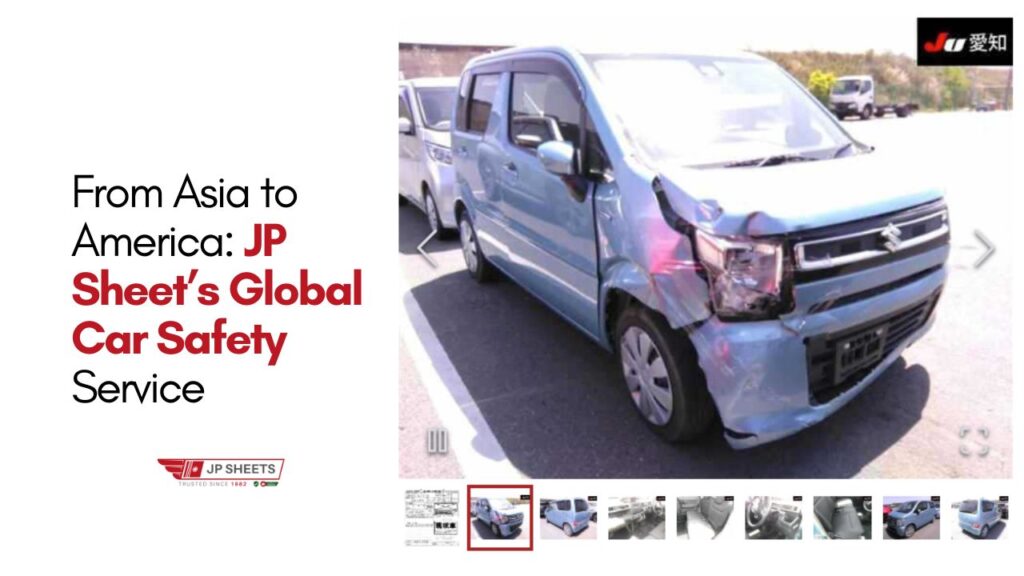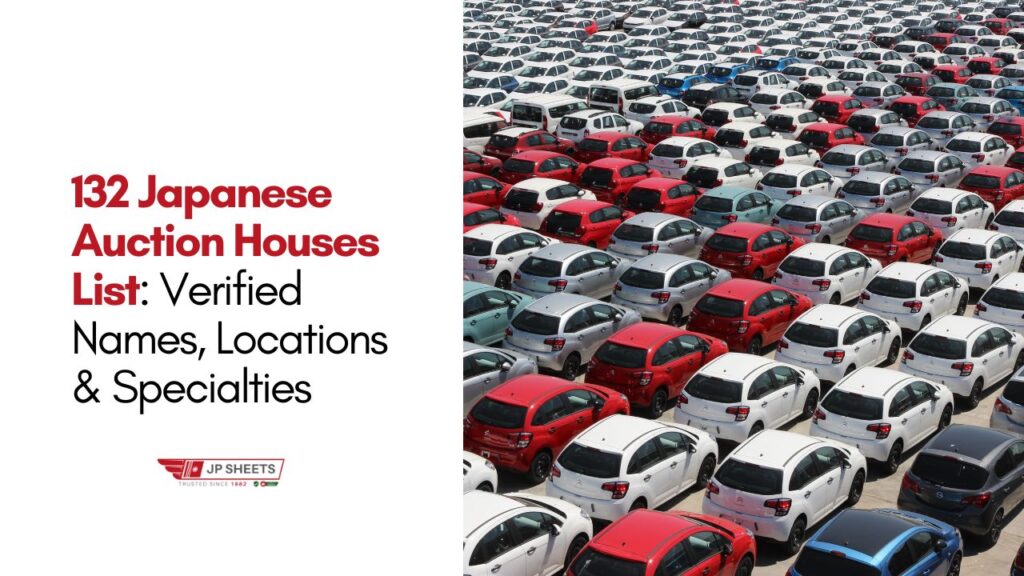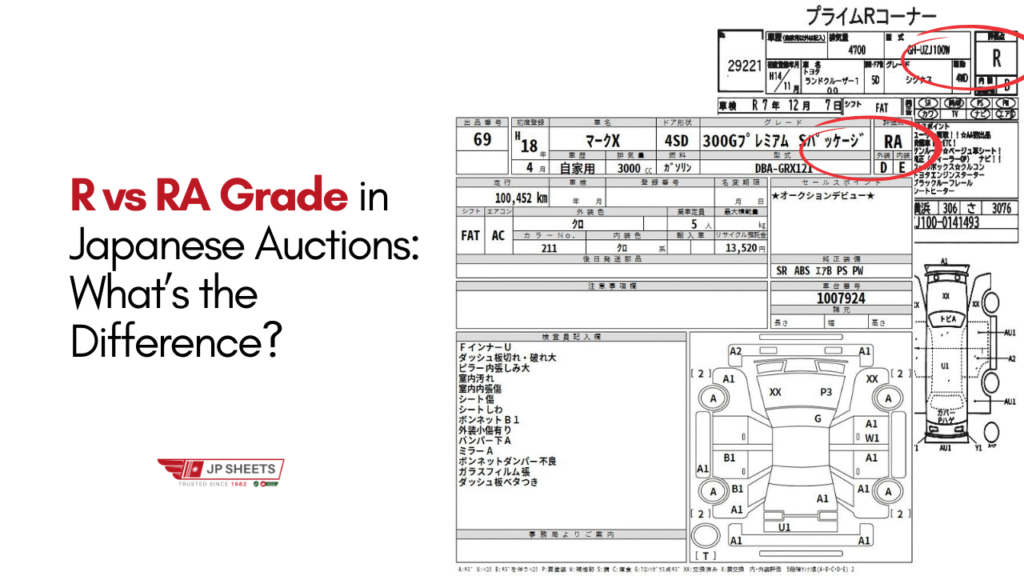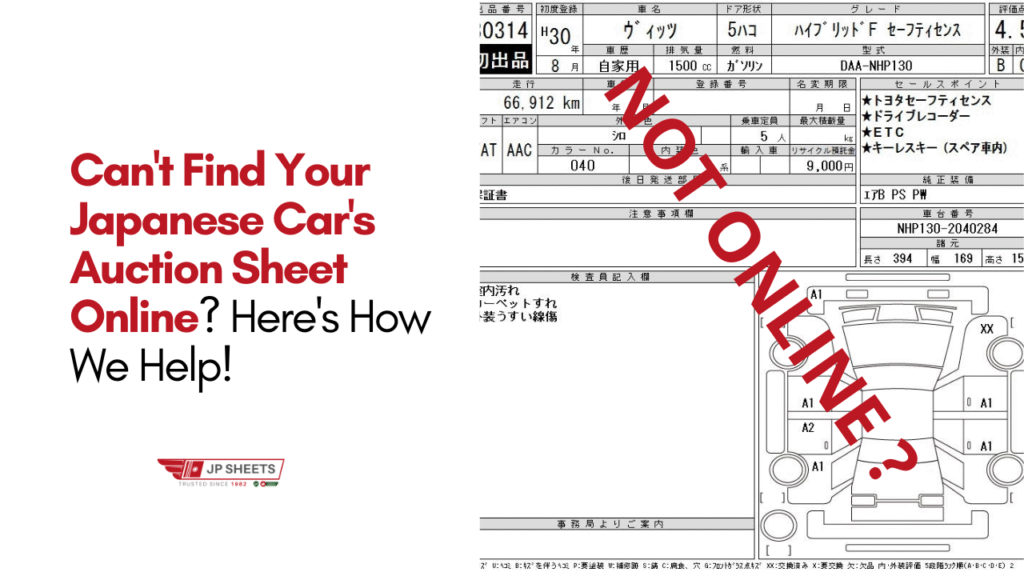What Are W1 W2 W3 Marks on Auction Sheet? Guide to Repair Marks
Hello, future car experts! Have you ever seen a car that looks a little different in certain spots? Maybe the color doesn’t quite match, or the surface seems wavy? These might be repair marks! In Japan, when inspectors check cars for auctions, they use special codes to describe these repair marks. W1 W2 W3 marks help explain how noticeable […]
What Are W1 W2 W3 Marks on Auction Sheet? Guide to Repair Marks Read More »
